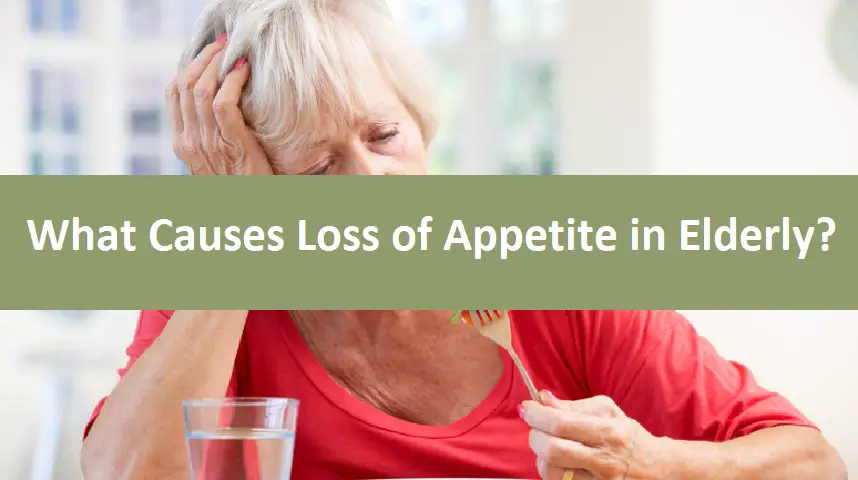As individuals age, they may experience changes in their appetite and eating habits. Loss of appetite is a common issue among elderly individuals that can lead to malnutrition and other health complications if left untreated.
Loss of appetite can have physical and psychological causes, and it is essential to discuss this issue with elderly individuals to identify the underlying factors and provide appropriate treatment.
This article will discuss the causes, prevention, and available resources for elderly individuals who experience loss of appetite, as well as some supermarkets that offer senior discounts.
Importance of Discussing Loss of Appetite In Elderly
Loss of appetite is a common issue among elderly individuals, and it can lead to various health complications if not addressed properly. As people age, their bodies undergo several changes that can affect their eating habits, such as changes in metabolism, digestion, and taste perception. Additionally, elderly individuals are more likely to have health conditions or take medications that can interfere with their appetite.
Loss of appetite can have a significant impact on an elderly person’s overall health and quality of life. Malnutrition is a common consequence of loss of appetite, which can lead to weight loss, muscle wasting, and a weakened immune system. Malnutrition can also increase the risk of falls and fractures in elderly individuals. Furthermore, loss of appetite can cause psychological distress and social isolation, which can worsen the condition.
It is crucial to discuss the loss of appetite in elderly individuals to identify the underlying causes and provide appropriate treatment. Identifying and addressing underlying health conditions, adjusting medications, providing nutritional support, and offering psychological support can help improve appetite and prevent complications. Additionally, promoting healthy habits, such as regular exercise, proper hydration, and social interaction, can help prevent loss of appetite in the first place.
Overall, loss of appetite in elderly individuals should not be ignored, as it can have severe consequences on their health and well-being. Seeking medical attention and implementing appropriate interventions can help elderly individuals maintain their appetite and enjoy a better quality of life.
Causes of Loss of Appetite in Elderly
There are several physical and psychological causes of loss of appetite in elderly individuals:
Physical Causes:
- Health conditions: Many health conditions common in elderly individuals can affect their appetite. Chronic conditions such as diabetes, kidney disease, and liver disease can lead to a decreased appetite, as can acute illnesses such as infections, cancer, and heart disease.
- Medications: Many medications that elderly individuals take can interfere with their appetite. Common culprits include chemotherapy drugs, antibiotics, and medications that treat high blood pressure or depression.
- Changes in taste and smell: As people age, their sense of taste and smell can change, which can affect their enjoyment of food and decrease their appetite.
Psychological Causes:
- Depression: Depression is common among elderly individuals and can cause a loss of appetite.
- Anxiety: Anxiety can also affect appetite, as it can cause nausea and stomach discomfort.
- Social isolation: Elderly individuals who are socially isolated may lose interest in food and may not eat as much as they should.
It is important to note that loss of appetite can be caused by a combination of physical and psychological factors. It is essential to identify the underlying causes to determine the appropriate treatment plan.
Prevention of Loss of Appetite in Elderly
There are several ways to prevent or reduce the risk of loss of appetite in elderly individuals:
- Regular exercise: Regular exercise can help maintain a healthy appetite and improve overall health. Encourage elderly individuals to engage in physical activities that they enjoy, such as walking, swimming, or yoga.
- Proper hydration: Dehydration can cause a loss of appetite. Ensure that elderly individuals drink enough water and other fluids throughout the day.
- Balanced diet: A balanced diet that includes a variety of foods can help maintain a healthy appetite. Encourage elderly individuals to eat nutrient-dense foods such as fruits, vegetables, whole grains, and lean proteins.
- Social interaction: Social isolation can lead to a loss of appetite. Encourage elderly individuals to participate in social activities and maintain social connections with family and friends.
- Address underlying health conditions: Many health conditions can cause a loss of appetite. Properly managing these conditions can help prevent or reduce the risk of loss of appetite.
- Nutritional support: In some cases, elderly individuals may need additional nutritional support to maintain a healthy appetite. This can include supplements or meal replacements.
By implementing these preventative measures, elderly individuals can maintain a healthy appetite and reduce the risk of malnutrition and other health complications associated with loss of appetite.
Find Out What Supermarkets That Offer Senior Discounts
Here are some supermarkets that commonly offer senior discounts:
- Kroger: Some Kroger stores offer a 5% discount on groceries to seniors aged 60 and older on certain days of the week. Contact your local store to find out more.
- Albertsons: Albertsons offers a 10% discount to seniors aged 55 and older on the first Wednesday of each month. Contact your local store to find out more.
- Publix: Publix offers a 5% discount to seniors aged 60 and older every Wednesday. Contact your local store to find out more.
- Fred Meyer: Fred Meyer offers a 10% discount to seniors aged 55 and older on the first Tuesday of every month. Contact your local store to find out more.
- Safeway: Safeway offers a 10% discount to seniors aged 55 and older on the first Wednesday of every month. Contact your local store to find out more.
Again, it’s best to check with your local supermarket to see if they offer senior discounts and what their specific policies may be.
Conclusion
In conclusion, loss of appetite is a common issue among elderly individuals that can have severe consequences on their health and well-being if left unaddressed. It is essential to discuss the loss of appetite in elderly individuals to identify the underlying causes and provide appropriate treatment.
Physical and psychological factors can contribute to loss of appetite, and preventative measures such as regular exercise, proper hydration, balanced diets, social interaction, and addressing underlying health conditions can help prevent or reduce the risk of loss of appetite.
Moreover, some supermarkets offer senior discounts, which can help seniors save money on groceries.
By understanding the causes, preventative measures, and available resources, we can help elderly individuals maintain their appetites and enjoy a better quality of life.

Morgan Elfman is a compassionate writer, dedicated caregiver, and passionate advocate for senior well-being. Born and raised with a deep sense of empathy and a natural inclination towards service, Morgan has devoted her life to making a positive impact on the lives of seniors.
As a writer for www.choiceseniorlife.com, Morgan utilizes his skills to create insightful and informative content that addresses the unique needs and challenges faced by seniors and their families. Her articles not only provide valuable information on health, lifestyle, and care options but also strive to inspire and empower seniors to lead fulfilling lives.
